Resources
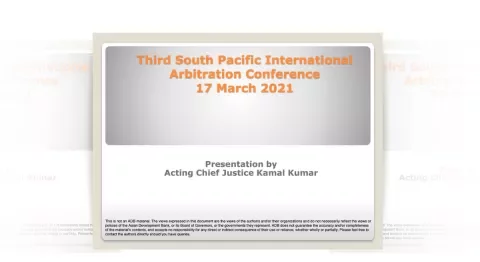
Third South Pacific International Arbitration Conference - Presentation by Acting Chief Justice Kamal Kumar
Justice Kamal Kumar, acting chief justice of the Supreme Court of Fiji, discussed the arbitration regime in Fiji. Fiji’s International Arbitration Act 2017 took effect on 4 December 2018 and applies even to international arbitration proceedings that began prior to its effectivity.
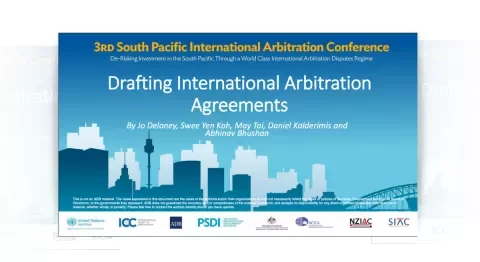
Drafting International Arbitration Agreements
The session covered the different types of arbitration, the elements that should be incorporated in an arbitration agreement, and tips to consider and traps to avoid in drafting an arbitration clause.
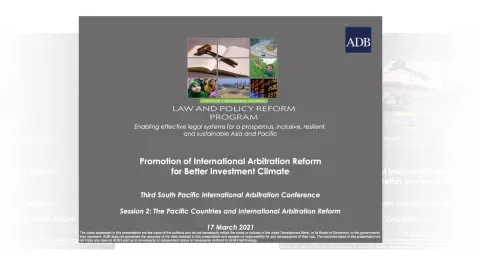
ADB Presents Overview of International Arbitration Reform in the South Pacific
ADB presents achievements of arbitration reform technical assistance accomplishments to date, emphasizing that South Pacific countries and Timor-Leste must continue to implement legal reforms on arbitration to attract foreign direct investment (FDI), a significant portion of Pacific economies.
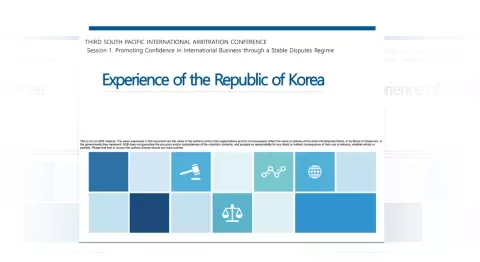
Experience of the Republic of Korea
Mr. Changwan Han, director of the International Dispute Settlement Division of Republic of Korea’s Ministry of Justice, talked about how international arbitration has contributed to increased economic activities and investment flows in South Korea. A stable and effective dispute resolution system plays an important role in promoting sustained economic growth and attracting foreign direct investment.
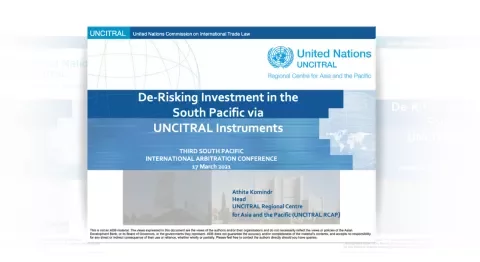
Opening Remarks Presentation of Ms. Athita Komindr during the Third South Pacific International Arbitration Conference
Ms. Athita Komindr, head of the United Nations Commission on International Trade Law (UNCITRAL) Regional Centre for Asia and the Pacific (RCAP), also gave her opening remarks. She identified the positive impacts of Asian Development Bank and UNCITRAL’s collaboration in introducing legal reforms on international commercial arbitration in the South Pacific, and stated UNCITRAL’s readiness to assist non-member countries.
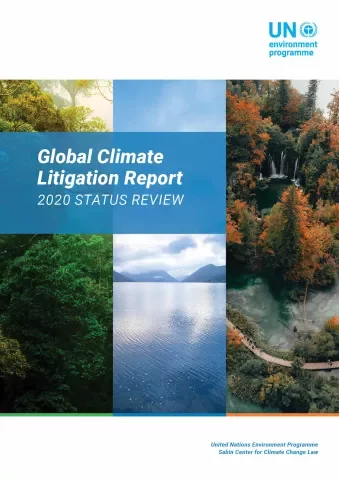
Global Climate Litigation Report: 2020 Status Review
The UNEP Global Climate Litigation Report: 2020 Status Review provides an overview of the current state of climate change litigation globally, as well as an assessment of global climate change litigation trends. It finds that a rapid increase in climate litigation has occurred around the world. In 2017 there were 884 cases brought in 24 countries. As of 1 July 2020, the number of cases has nearly doubled with at least 1,550 climate change cases filed in 38 countries. This growing tidal wave of climate cases is driving much-needed change.
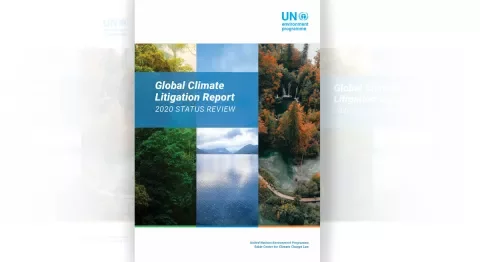
Global Climate Litigation Report: 2020 Status Review
The UNEP Global Climate Litigation Report: 2020 Status Review provides an overview of the current state of climate change litigation globally, as well as an assessment of global climate change litigation trends.
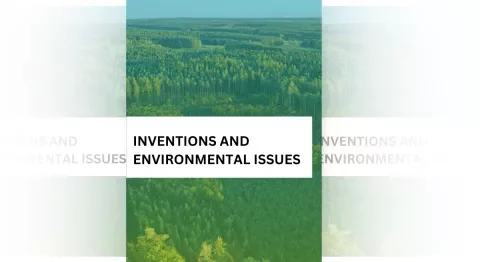
Patent and Human Rights: Inventions and Environmental Issues
The relationship between human rights and contributions to knowledge has been at the center of important debates over the past several years. The International Covenant on Economic, Social and Cultural rights is in many ways the most crucial legal instrument through which the relationship between the two fields can be examined. Firstly, it recognizes, for instance, the rights to health, food and technology, which are some of the rights whose realization can be affected in developing countries that adopt or strengthen intellectual property rights framework based on the commitments they take under the TRIPS (Trade related aspects of Intellectual Property Rights) or other intellectual property. Secondly, it recognizes at Article 15(1) C, the need to reward individuals and groups that make specific intellectual contributions that benefit society.
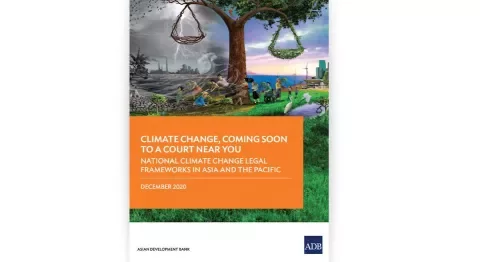
Climate Change, Coming Soon to a Court Near You: National Climate Change Legal Frameworks in Asia and the Pacific
Report 3 provides holistic syntheses of the climate legal and policy frameworks of 32 countries in Asia and the Pacific and discusses key legislative trends and climate-relevant constitutional rights.
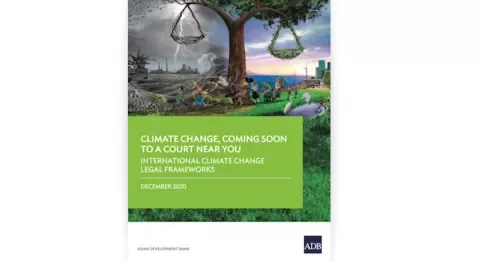
Climate Change, Coming Soon to a Court Near You: International Climate Change Legal Frameworks
Report 4 explores the Paris Agreement and the international legal framework that supports global and domestic climate action.